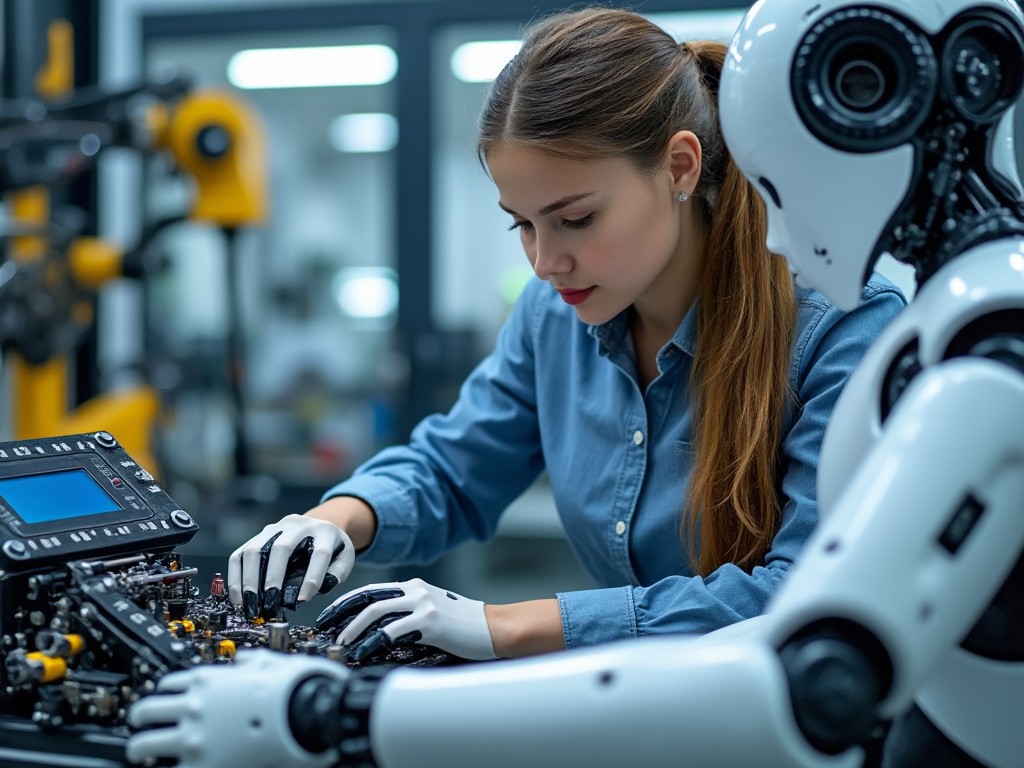AI and the Future of Education: A Practical Roadmap for 2025 and Beyond
Introduction
The Fourth Industrial Revolution is here, and artificial intelligence (AI) is reshaping every facet of human life—including education. From personalized learning to administrative automation, AI’s potential to democratize education and enhance outcomes is unparalleled. But how do we harness this technology responsibly? Drawing on my decade of experience in AI research and philosophical inquiry, this blog explores actionable strategies for integrating AI into education while addressing ethical, practical, and systemic challenges.
1. AI-Powered Personalized Learning: Beyond One-Size-Fits-All
Traditional classrooms often struggle to accommodate diverse learning styles. AI-driven adaptive learning systems, such as those piloted in Hartford Public Schools, now tailor lessons to individual student needs by analyzing performance data in real time. Platforms like Khan Academy use AI to identify knowledge gaps and recommend targeted exercises, effectively acting as 24/7 tutors.
Key Benefits:
- Scalability: AI enables personalized instruction for millions of students simultaneously.
- Accessibility: Learners in remote areas gain access to high-quality resources, bridging geographic disparities.
- Efficiency: Teachers spend less time grading and more time mentoring.
Challenges:
- Data Privacy: Safeguarding student information is critical. Tools must comply with regulations such as FERPA and GDPR.
- Bias Mitigation: AI models trained on biased data can perpetuate inequities. Regular audits and diverse training datasets are essential.
2. Automating Administrative Workflows: Freeing Educators to Teach
A 2024 HolonIQ report found that educators spend 30% of their time on administrative tasks. AI can automate attendance tracking, scheduling, and even plagiarism detection. Tools like Grammarly provide AI-driven assistance to evaluate essays and offer actionable feedback to students.
Implementation Strategies:
- AI-Driven Analytics: Platforms like PowerSchool streamline grading and attendance tracking.
- AI Chatbots: Institutions such as Des Moines Public Schools utilize chatbots to handle routine inquiries, allowing staff to focus on strategic tasks.
Considerations:
- Human Oversight: AI should enhance human judgment, not replace it.
- Professional Development: Programs like Google's AI 101 for Educators empower teachers to effectively use AI tools.
3. Ethical AI: Balancing Innovation with Responsibility
With AI’s growing presence in education, ethical concerns arise. Generative AI tools, such as ChatGPT, facilitate content creation but can encourage academic dishonesty if not used appropriately. Schools must implement clear policies regarding AI usage and train students on ethical engagement.
Actionable Steps:
- Develop AI Literacy Curricula: Teach students how to critically analyze AI outputs and recognize bias.
- Collaborate with Policymakers: Advocate for policies that prioritize ethical AI deployment in education.
4. Preparing Students for an AI-Driven Workforce
By 2030, the World Economic Forum predicts AI will create 97 million new jobs—requiring specialized skills. Vocational training programs, such as India’s work-integrated learning mandate, ensure students graduate with industry-relevant AI experience.
Recommendations:
- Integrate AI into STEM Curricula: Use platforms such as Coursera and edX to teach coding, machine learning, and data analysis.
- Foster Soft Skills: Project-based learning should emphasize creativity, problem-solving, and critical thinking.
A Call to Action
AI’s role in education is unfolding rapidly. By embracing personalized learning technologies, automating administrative workflows, and addressing ethical considerations, we can foster an equitable and efficient educational landscape. As highlighted in my book Heavy Silver, technology is a tool we must wield wisely to shape the future.
External Links:
- HolonIQ: 2025 Education Trends
- THE Journal: 2025 AI Predictions
- Khan Academy AI Tools
- Grammarly for Education
- Google AI 101 for Educators
Keywords:
AI in education, personalized learning, ethical AI, adaptive learning, AI workforce skills, educational SEO, AI literacy, vocational training, AI automation, future of education, machine learning, STEM education, AI policy, conversational search, EdTech trends.
Also check out these books:
Quantum Computing for Smart Pre-Teens and Teens
Test your Knowledge: QUANTUM NERD: Quizmaster Edition
Related Content
- Great Scientists Series
- Careers in Quantum Computing: Charting the Future
- John von Neumann: The Smartest Man Who Ever Lived
- The Development of GPT-3
- IBM Watson's Jeopardy Win: Showcasing AI Power
- Steve Jobs: Visionary Innovator of Technology
- Tesla: The Electrifying Genius
- Perplexity AI: A Game-Changing Tool
- Understanding Artificial General Intelligence (AGI)
- Self-Learning AI in Video Games
- Teen Entrepreneurship Tools
- Tesla's FSD System: Paving the Way for Autonomous Driving
- The First AI Art: The Next Rembrandt
- AI in Space Exploration: Pivotal Role of AI Systems
- The Birth of Chatbots: Revolutionizing Customer Service
- Alexa: Revolutionizing Home Automation
- Google's DeepMind Health Projects
- Smarter Than Einstein Podcast
- The Creation of Siri: Pioneering a New Era of Virtual Assistants
- Deep Blue Beats Kasparov: The Dawn of AI in Chess
- The Invention of Neural Networks
Stay Connected
Follow us on @leolexicon on X
Join our TikTok community: @lexiconlabs
Watch on YouTube: Lexicon Labs
Newsletter
Sign up for the Lexicon Labs Newsletter to receive updates on book releases, promotions, and giveaways.
Catalog of Titles
Our list of titles is updated regularly. View our full Catalog of Titles





.jpg)

